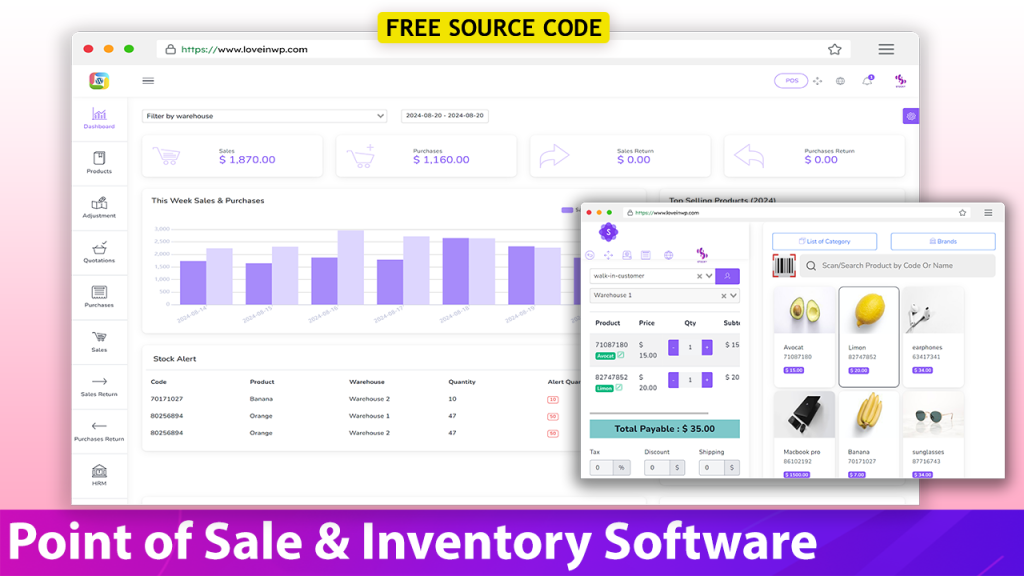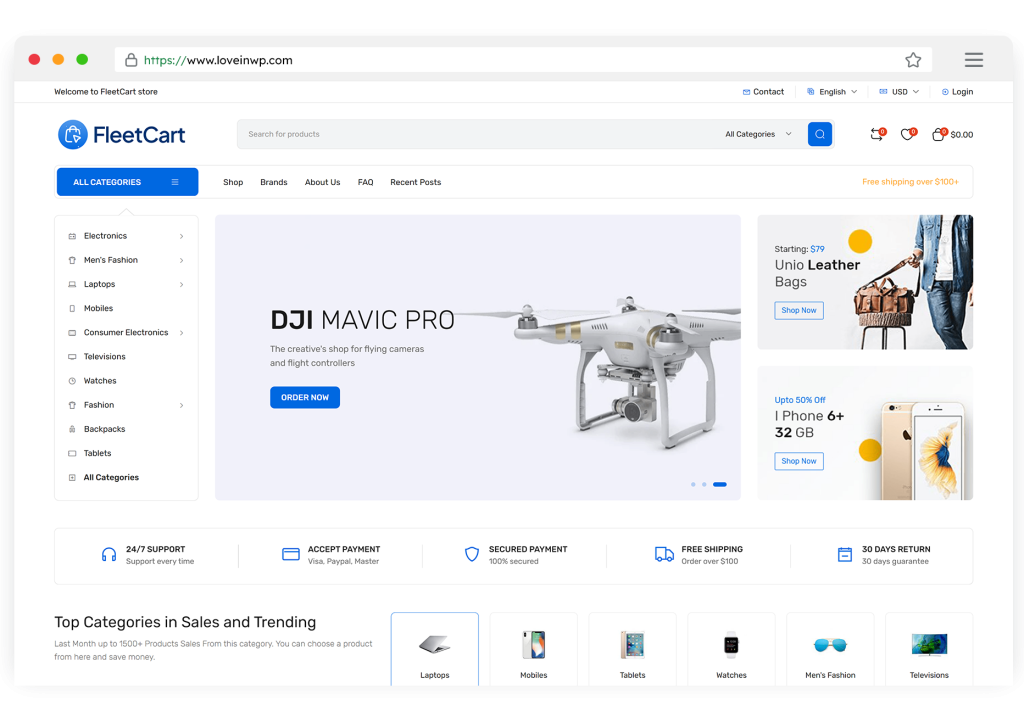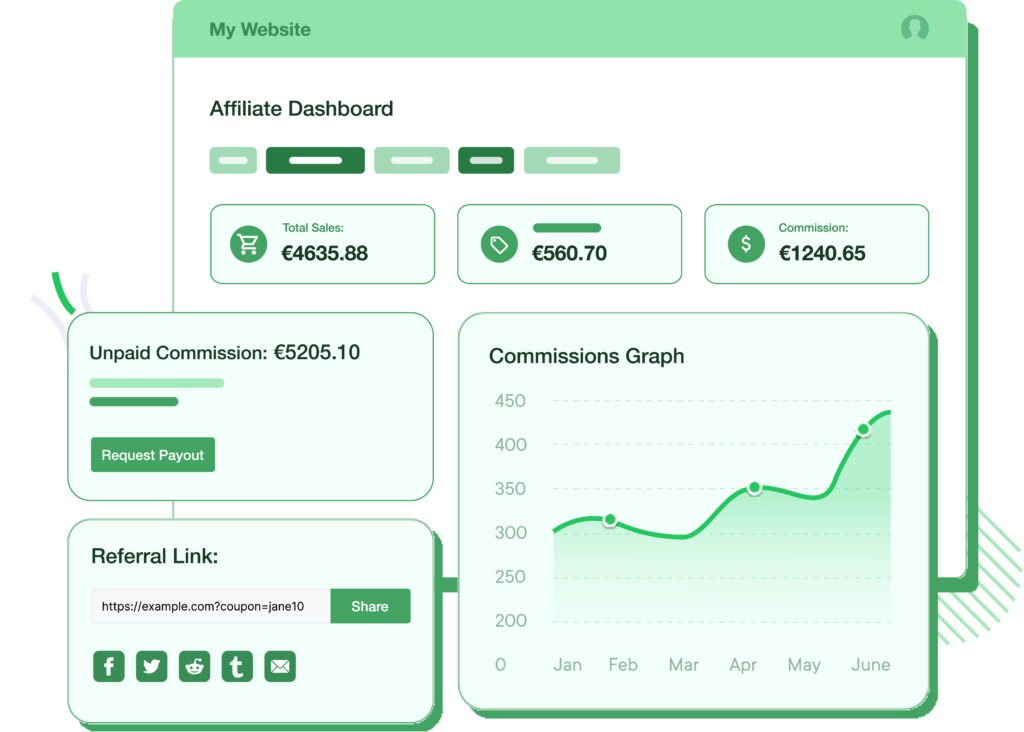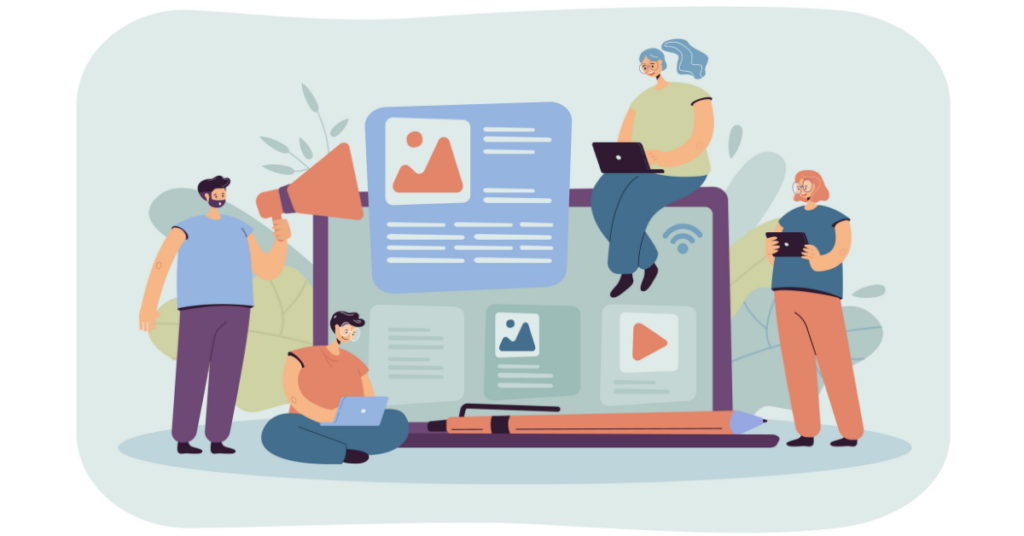In today’s digital age, having a strong online presence is no longer a luxury for small businesses – it’s a necessity. Imagine a storefront with its doors locked tight, shrouded in darkness. That’s essentially what a small business without a website is doing to its potential customers. A website acts as your digital storefront, open 24/7, readily accessible to anyone with an internet connection.
Here at loveinwp, we understand the importance of a website for small businesses. That’s why we’ve created this comprehensive guide to explore the numerous reasons why your small business needs a website and how it can revolutionize your brand’s reach and success.

Be Found: Increased Visibility and Credibility
The internet is the modern-day yellow pages. People use search engines like Google to find everything they need, including the products and services your small business offers. Without a website, your business becomes invisible in this vast online landscape. Potential customers simply won’t be able to find you.
A website serves as your digital address, allowing you to claim your space on the internet and ensure your business appears in relevant search results. By optimizing your website content with relevant keywords and utilizing search engine optimization (SEO) techniques, you increase your chances of ranking higher on search engine results pages (SERPs). The higher your ranking, the more likely potential customers are to discover your business.
Moreover, a professional website with clear information and a polished design instills trust and credibility in your brand. Consumers are more likely to do business with a company that has a legitimate online presence. A website showcases your professionalism and commitment to serving your customers.
Showcase Your Brand and Offerings
Your website is your virtual brochure, a platform to tell your brand story and highlight the unique value you offer. Gone are the days of relying solely on word-of-mouth marketing. A website allows you to extensively showcase your products or services in a visually appealing and informative way.
Use high-quality images and compelling descriptions to capture your audience’s attention. Detail the benefits of your offerings, explain how your products solve customer problems, and differentiate yourself from competitors. You can even include case studies, testimonials, and client reviews to build trust and social proof.
24/7 Availability: Always Open for Business
Unlike a physical store with limited operating hours, your website is always open for business. It works tirelessly around the clock, 365 days a year. Potential customers can browse your offerings, learn about your brand, and even make purchases (if you have an e-commerce store) at their convenience, regardless of location or time zone.
This “always-on” availability is a significant advantage in today’s fast-paced world. Consumers expect immediate access to information, and a website allows you to fulfill that need.
Targeted Marketing and Lead Generation
Your website is a powerful marketing tool that goes beyond simply informing potential customers. It allows you to implement targeted marketing strategies to reach a wider audience and generate valuable leads.
Here are some effective marketing tactics you can leverage through your website:
- Content Marketing: Create informative blog posts, articles, and videos that address your target audience’s needs and pain points. This establishes your expertise, attracts organic traffic, and positions you as a thought leader in your industry.
- Email Marketing: Capture visitor information through strategically placed opt-in forms, allowing you to build an email list for targeted email marketing campaigns. Offer valuable content like newsletters, promotions, and exclusive discounts in exchange for email addresses.
- Call to Action (CTA): Prompt visitors to take a desired action on your website, such as contacting you for a quote, subscribing to your newsletter, or making a purchase. Clear and compelling CTAs are crucial for driving conversions.
Build Customer Relationships and Brand Loyalty
A website fosters deeper customer relationships and fosters brand loyalty. It provides a platform for two-way communication, allowing you to connect with your audience on a more personal level. Through your website, you can:
- Create a blog: Share industry insights, behind-the-scenes glimpses, and humanize your brand by showcasing your company culture and team members.
- Engage with comments and reviews: Actively respond to comments, questions, and reviews left by visitors on your website. This demonstrates your commitment to customer service and builds trust.
- Offer live chat support: Implement live chat functionality to provide real-time assistance to website visitors. This personalized approach improves customer experience and satisfaction.
- Maintain a social media presence: Integrate social media buttons on your website to encourage visitors to
Cost-Effective Marketing and Advertising
Compared to traditional marketing methods like print advertising or television commercials, a website offers a much more cost-effective way to reach your target audience. The initial investment in website design and development is significantly lower than running ongoing print or TV ad campaigns.
Furthermore, your website serves as a central hub for all your marketing efforts. You can direct traffic to your website from social media campaigns, email marketing blasts, and even offline marketing materials like flyers and business cards. This centralized approach streamlines your marketing efforts and maximizes your return on investment (ROI).
Valuable Customer Insights and Data
Your website provides valuable insights into your target audience and their behavior. By utilizing analytics tools like Google Analytics, you can track website traffic, visitor demographics, user journeys, and content engagement. This data allows you to:
- Identify your ideal customer: Analyze website traffic data to understand who is visiting your website and what interests them. Use this information to tailor your marketing messages and website content to resonate with your target audience.
- Optimize your website: Track user behavior to see which website pages are most popular and which ones have high bounce rates (visitors leaving quickly). This data helps you identify areas for improvement and optimize your website for better user experience and engagement.
- Measure marketing campaign success: Track conversions generated from your marketing efforts (e.g., email signups, contact form submissions, online purchases). This data helps you measure the effectiveness of your marketing campaigns and adjust your strategies accordingly.
Build Brand Authority and Expertise
A well-designed website with informative content establishes your brand as an authority figure in your industry. By consistently publishing high-quality blog posts, articles, or white papers that address your target audience’s pain points, you demonstrate your expertise and build trust with potential customers.
You can further enhance your credibility by including client testimonials, case studies, and industry awards and recognition on your website. Showcase your expertise and achievements to position yourself as a leader in your field.
Increase Sales and Revenue
Ultimately, the goal of your website is to drive sales and increase revenue for your small business. By implementing the strategies mentioned above, such as targeted marketing, lead generation, and e-commerce functionality (if applicable), your website becomes a powerful sales tool.
Here are some additional ways your website can boost your sales:
- Offer online booking or appointment scheduling: Allow potential customers to book appointments or consultations directly through your website, streamlining the sales process.
- Promote special offers and discounts: Highlight limited-time promotions and special offers on your website to incentivize purchases.
- Targeted product recommendations: Utilize website analytics data to personalize product recommendations for each visitor based on their browsing history, increasing the likelihood of conversions.
Competitive Advantage
In today’s competitive business landscape, having a website can give your small business a significant edge over competitors who are lagging behind in the digital age. A professional and informative website showcases your professionalism and commitment to customer service, making a positive first impression on potential customers.
Furthermore, your website allows you to clearly differentiate your brand from competitors. Highlight your unique selling proposition (USP) and showcase the value you offer that sets you apart.
Conclusion: Invest in Your Online Presence
In conclusion, a website is no longer just a “nice to have” for small businesses; it’s a crucial component for success in today’s digital world. A well-designed and informative website offers a multitude of benefits, from increased visibility and brand awareness to improved customer engagement and ultimately, increased sales and revenue.
By investing in a professional website and utilizing the strategies outlined in this guide, you can empower your small business to thrive in the competitive online marketplace. At loveinwp, we are passionate about helping small businesses succeed online. We offer a variety of website development and marketing services to help you establish a strong online presence and achieve your business goals.






